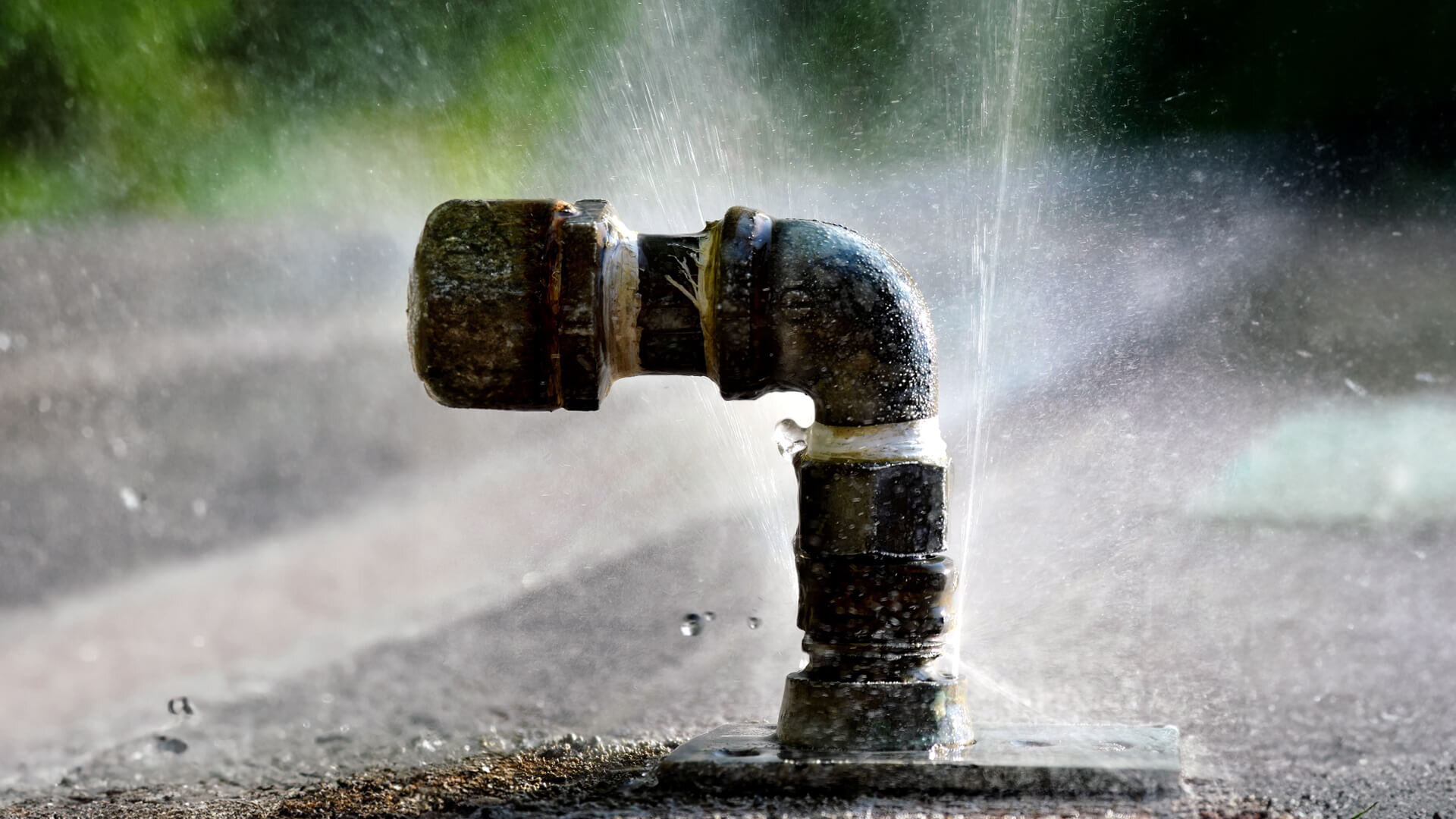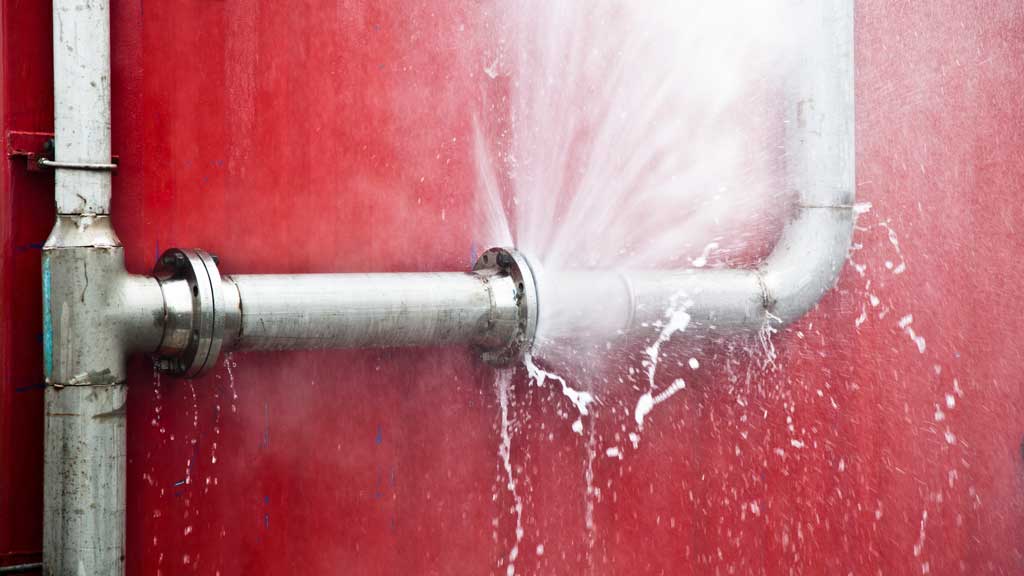What to Do When a Burst Pipe Causes Water Damage in Your Home
What to Do When a Burst Pipe Causes Water Damage in Your Home
Blog Article
Protecting Against Burst Water Lines: Important Tips to Shield Your Pipes
Avoiding ruptured pipelines is an important worry for home owners, particularly during colder months when the risk of cold is heightened. Applying strategic procedures such as appropriate insulation, routine evaluations, and preserving consistent indoor temperatures can significantly minimize the possibility of pipeline failing. Additionally, understanding emergency treatments gears up homeowners to react quickly to prospective pipes issues. However, lots of are uninformed of the details susceptabilities that their pipelines may face. Exploring these vulnerabilities can offer very useful insights right into guarding your pipes system properly.
Understand Pipe Vulnerabilities
Comprehending pipe susceptabilities is vital for effective plumbing maintenance and avoiding costly damages. Numerous variables add to the susceptibility of pipelines to ruptureds, consisting of material composition, age, and ecological conditions. Older pipes, especially those made from galvanized steel or polybutylene, often break down gradually, resulting in raised risk of leaks and tears.
Temperature fluctuations can also significantly effect pipe stability. In colder environments, water trapped in pipes can freeze, putting in and expanding stress on the pipeline walls, which may eventually result in a burst. High water pressure can strain pipelines, particularly at bends and joints, increasing the probability of failing.

Insulate Piping Properly
Appropriate insulation of pipes is important for preventing cold and subsequent ruptureds during winter (burst pipe). Insulating your pipes system successfully safeguards versus temperature drops that can bring about costly damages. Begin by determining vulnerable areas where pipes are subjected to outdoor temperatures, such as cellars, attics, and exterior wall surfaces
Usage foam pipe insulation sleeves or wrap insulation tape around these areas to provide a safety barrier. Make certain that all areas of the pipes, particularly those with minimal warm exposure, get appropriate insulation. Pay unique interest to joints and installations, as these are a lot more vulnerable to cold.
When insulating, it's necessary to choose products that meet neighborhood building ordinance and are suitable for the particular setting. Fiberglass insulation is typically suggested for its thermal resistance buildings. In addition, think about using warmth cords or tape in extreme conditions, which can be plugged in to give supplemental warmth
Routinely evaluate protected pipelines for any type of indications of wear or damages, as compromised insulation can reduce its performance. By taking these positive steps, you substantially lower the risk of pipeline ruptureds, making sure a reputable pipes system throughout the cold weather.
Maintain Constant Temperature
A secure indoor temperature level is crucial for preventing ruptured pipes throughout the cold months. When temperatures drop, water within pipes can ice up, expanding and developing pressure that might inevitably trigger the pipelines to ruptured. To minimize this risk, property owners ought to keep a consistent temperature throughout their space, ideally no reduced than 55 ° F(13 ° C)Using a programmable thermostat can aid handle indoor temperature levels successfully, making certain that spaces with plumbing remain warm even when your house is empty. Pay special focus to locations that are much more vulnerable to chilly, such as garages, cellars, and attics. Maintaining cabinet doors open under sinks can likewise enable warmer air from the home to flow around plumbing.
Furthermore, it is prudent to allow faucets to drip slightly throughout severe cold snaps. This small circulation of water can prevent cold by minimizing stress within the pipelines. Throughout specifically extreme climate occasions, take into consideration briefly putting on hold any type of nighttime setbacks on your thermostat to keep a constant cozy environment. By carrying out these strategies, house owners can dramatically lower the risk of pipe bursts and secure their pipes systems against the severe wintertime components.
Routinely Check Plumbing
Routine inspections of pipes systems are critical for stopping burst pipes and preserving overall home stability. Throughout these evaluations, it is essential to examine visible pipes for indicators of rust, leakages, or wear.
Additionally, examining joints and links is important, as these points are frequently vulnerable to leakages. Home owners should also assess water pressure degrees, as extreme stress can stress the pipes system and boost the threat of pipe ruptureds.
Think about organizing professional pipes inspections at least yearly, especially before winter months, to ensure your system is prepared for cooler temperatures. Regular evaluations not just aid in determining immediate concerns but likewise foster long-lasting maintenance techniques that can improve the life expectancy of your pipes system. By being aggressive in your approach, you can protect your home against the disruptive and costly repercussions of ruptured pipelines. Focusing on pipes inspections is an investment in your home's health and wellness and safety.
Know Emergency Procedures
Comprehending emergency situation treatments is crucial for every single property owner, specifically after conducting routine plumbing assessments. Being Continue prepared for a plumbing emergency situation can considerably minimize damage and conserve costs. Find your major water shut-off shutoff; it is normally found near the water meter or where the main line enters your home. Acquaint on your own with its operation, as turning off the water supply quickly can avoid extensive flooding.
Next, keep important devices handy. A pipes emergency set ought to consist of a wrench, plunger, and towels, in addition you could look here to a flashlight and a pail for small leaks. In addition, think about having the get in touch with info for a relied on plumbing professional conveniently offered, ought to the circumstance intensify past your control.
If you detect a leak or burst pipeline, instantly shut off the water supply and alert your plumbing technician. Document the damages with photographs for insurance coverage objectives. Recognize the signs of possible plumbing issues, such as uncommon water pressure changes or damp places on walls
Inevitably, proactive understanding and swift action are essential in taking care of pipes emergency situations, ensuring your home continues to be secured and decreasing prospective damage.

Verdict
In verdict, protecting against burst pipelines necessitates a diverse approach that includes understanding pipe susceptabilities, correct insulation, preserving constant indoor temperatures, routine examinations, and understanding of emergency treatments. By executing these necessary methods, the threat of pipes failures can be considerably reduced, consequently making certain the long life and performance of the plumbing system. Aggressive actions not only protect against potential damages but also contribute to general water conservation and the weblink protection of building.
In cooler climates, water entraped in pipelines can ice up, applying and increasing stress on the pipe walls, which might inevitably lead to a ruptured. When temperature levels decline, water within pipes can ice up, creating and broadening pressure that may inevitably cause the pipes to burst. By applying these techniques, home owners can considerably reduce the risk of pipeline bursts and protect their plumbing systems versus the extreme wintertime components.

Report this page